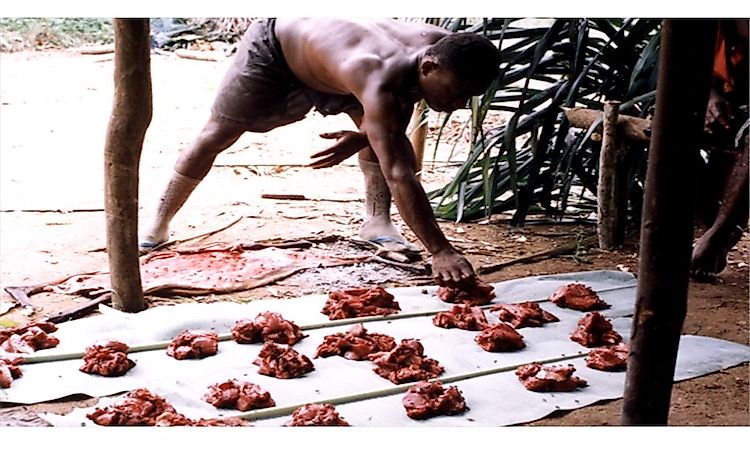What Is Primitive Communism?

What Is Primitive Communism?
The traditional economy characterized most of the societies in the early centuries. The traditional economy is built around the way of life of the society and which customs and traditional beliefs are critical in the production of goods and services. It is based on traditional agriculture, hunting, gathering, and fishing while barter trade is used in place of money. The family unit is an important factor in the traditional economy with most families progressing from hunters to farmers only in places where they can put up permanent structures. Given the traditional economy, economists referred to the way of life and interactions in these societies as primitive communism.
Definition Of Primitive Communism
Primitive communism was a concept put forward by Karl Marx and Friedrich Engels who proposed that the traditional hunters and gatherers were based on egalitarian social relations and common ownership. A Marxist model socioeconomic society with primitive communism had no defined or hierarchical structure or capital. Marx suggested that the ancient methods of production are the key pillars that define the transition of societies. The early characteristics of primitive communism involving the primitive ways of hunting and gathering paved for traditional methods of agriculture. Primitive communism is, therefore, a collective right to basic resources in a social relationship like society or family without any authoritarian rule.
History Of Primitive Communism
Karl Marx and Engels were inspired by Lewis Henry Morgan’s description of communism in living that characterized the Iroquois Nation of North America. The speculative evolutionary history by Lewis highlighted the liberty and equality among the ancient people that was evident in the family setting of the Iroquois Nation. Engels transformed this idea into an evolutionary theory with a publication “the Origin of the Family” in 1884. He argued that transition from traditional modes of production to subsequent production involved a change of production for domestic or family use to production for sale or exchange and a transformation from communal family relations to an individual family as the main economic unit. Marx and Engels expanded the use of communism to include not only hunters and gatherer but also subsistence agricultural communities.
Characteristics Of Primitive Communist Societies
In primitive communism and societies, every able voided person was engaged in the production of food and everyone share in the food that has been obtained by either hunting or gathering. There is no private ownership of property such as clothing and such similar items because the primitive society produce just enough and is immediately consumed and there is no surplus. Whatever exists for a lengthy time like tools and housing are communally owned. There is a division of labor with men taking much of the hunting while the women are involved in the gathering. Pregnant women or those nursing their babies are protected from the dangers of hunting to preserve the next generation. However, there is no division of labor in other aspects such as leadership since both men and women take part in decision making.
The Evolution Of Primitive Communism
The rise of social class society has changed the human history. The communal ways of organizing society have since changed. Humans have moved from a society of equality and communal living to one characterized by oppression and exploitation. The agricultural revolutions around the world have transformed most hunter-gatherers to farmers. The need for a political structure to advance the affairs of the communities has brought about significant changes to communal leadership and decision making.











